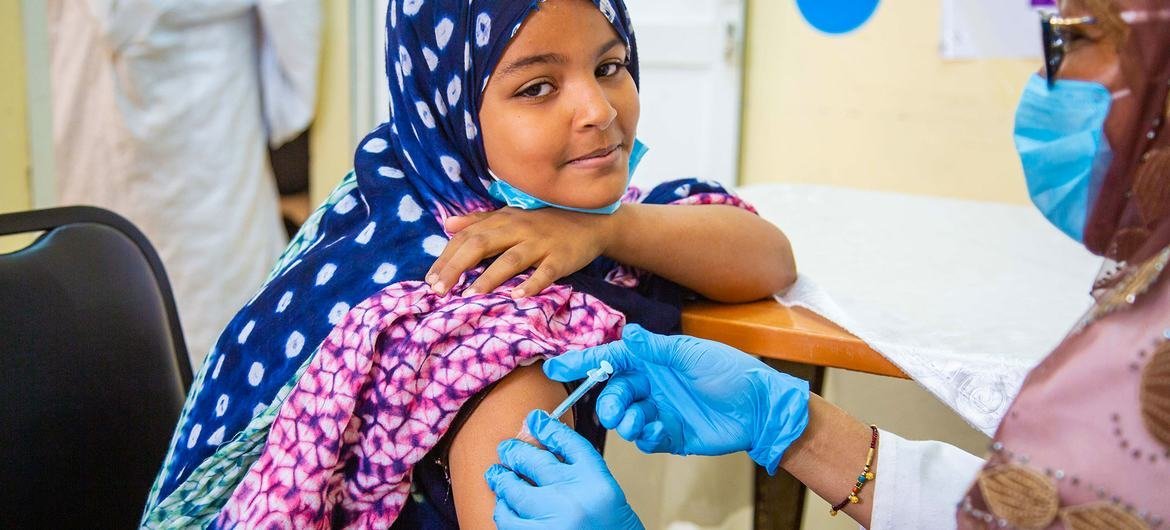- Cervical cancer is a pressing issue for women’s health in Pakistan, ranking fourth globally. Preventable with the HPV vaccine, its availability is limited, and misconceptions abound.
- WHO urges a strategy for 2030, including vaccination, screenings, and treatment.
- Pakistan’s initiative to introduce the HPV vaccine faces challenges but is supported by government allocation of Rs 100 million ($365,884) for promotion.
Cervical cancer poses a significant challenge to women’s health in Pakistan. It is ranked as the fourth most common cancer affecting women worldwide. This is the only type of cancer that can be prevented by the HPV vaccine.
In Pakistan, this form of cancer presents a substantial threat, particularly to women aged 15 and above. A simple vaccine can save the lives of thousands of women, however, the HPV vaccine is often unavailable in the country and rarely prescribed by doctors.
Risk Factors for Increased Cervical Cancer in Pakistani Women
In Pakistan, several factors contribute to the elevated risk of cervical cancer such as a ack of awareness about cervical cancer, its risk factors, and preventive measures within the general population often leads to delayed diagnosis and treatment.
Many women in Pakistan lack access to regular health check-ups, which means that cervical cancer may go undetected until it reaches an advanced stage. Other women face cultural barriers that discourage discussions about reproductive health, leading to missed opportunities for early detection and prevention.
The Human Papillomavirus (HPV) vaccination, which helps prevent the infection that can lead to cervical cancer, is not widely accessible in many parts of Pakistan. Pakistani women are often subjected to early marriages and childbirth which also increases the risk of cervical cancer as younger women are more susceptible to the effects of HPV.
Also Read:
Pill for Postpartum Depression is a Game Changer for Women’s Health
WHO Directives to Eradicate Cervical Cancer in Pakistan
In countries like Pakistan, the World Health Organization (WHO) has outlined a comprehensive strategy to eradicate cervical cancer. This strategy involves three crucial interventions to be achieved by 2030:
- Ensuring that 90 percent of girls aged 9 to 14 receive HPV vaccination.
- Implementing twice-lifetime cervical screenings for 70 percent of eligible individuals.
- Providing treatment for pre-invasive lesions and invasive cancer to 90 percent of those affected.
The focus on HPV vaccinations emerges as an important measure for preventing cervical cancer. According to Dr Uzma Chishti, assistant professor and consultant gynecologic oncologist, Department of Obstetrics and Gynecology, AKUH,
“There is a total lack of information about HPV, cervical cancer, and its prevention among the masses”
Chishti emphasized that these vaccinations offer primary prevention, proving especially significant in the absence of alternatives such as VIA (Visual Inspection with Acetic Acid), screenings, and pap smear tests.
According to reports, around 60 percent of cervical cancer cases are found in countries where HPV vaccination remains unimplemented. Unfortunately, Pakistan finds is also in this category, stressing the urgency of adopting this preventive approach.
In Pakistan, two globally licensed HPV vaccines – Cervarix (protective against HPV serotypes 16 and 18) and Gardasil (against 6, 11, 16, and 18) were available till a few years ago, but very few doctors, even in the private sector, were prescribing them.
Also Read:
Diabetes in Women Leading to Fatal Heart Health Problems in Pakistan
Introduction of the HPV Vaccine in Pakistan
Pakistan is in talks with Gavi, the vaccine alliance, to support the country in including the single-dose HPV (two covers four strains) vaccine in its routine immunisation programme. The said campaign will take almost two more years to roll out to the masses.
However, the team behind the immunisation programme is expecting a push-back from the Pakistani masses as various misconceptions are attached to such vaccines especially this which is to be administered to young girls from the age of 9 to 14.
The Sindh provincial government, as a contribution, allocated a sum of Rs 100 million ($365,884) in its present budget to promote the acceptance of the HPV vaccine.
Follow WOW360 for more.
